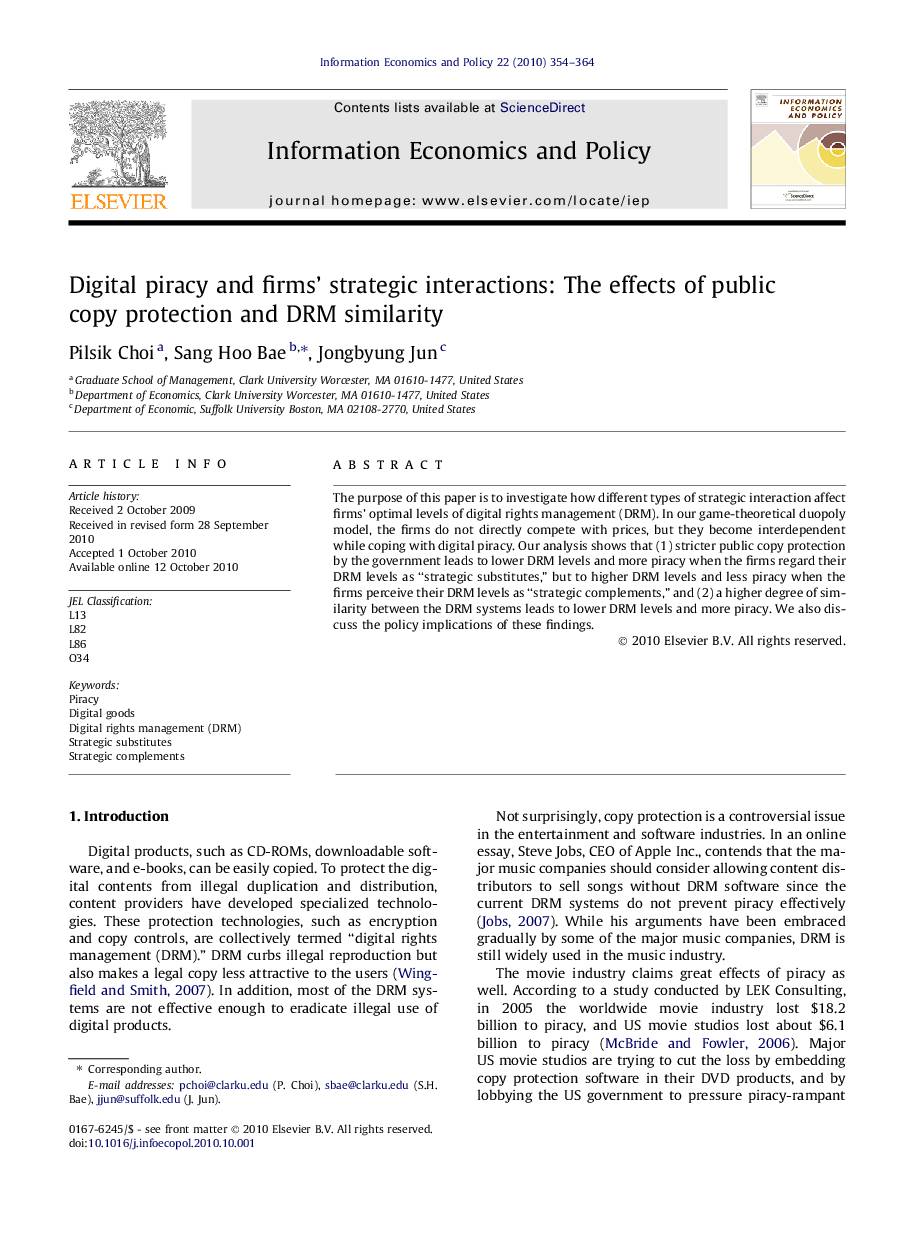| Article ID | Journal | Published Year | Pages | File Type |
|---|---|---|---|---|
| 5075820 | Information Economics and Policy | 2010 | 11 Pages |
Abstract
The purpose of this paper is to investigate how different types of strategic interaction affect firms' optimal levels of digital rights management (DRM). In our game-theoretical duopoly model, the firms do not directly compete with prices, but they become interdependent while coping with digital piracy. Our analysis shows that (1) stricter public copy protection by the government leads to lower DRM levels and more piracy when the firms regard their DRM levels as “strategic substitutes,” but to higher DRM levels and less piracy when the firms perceive their DRM levels as “strategic complements,” and (2) a higher degree of similarity between the DRM systems leads to lower DRM levels and more piracy. We also discuss the policy implications of these findings.
Keywords
Related Topics
Social Sciences and Humanities
Business, Management and Accounting
Management of Technology and Innovation
Authors
Pilsik Choi, Sang Hoo Bae, Jongbyung Jun,
